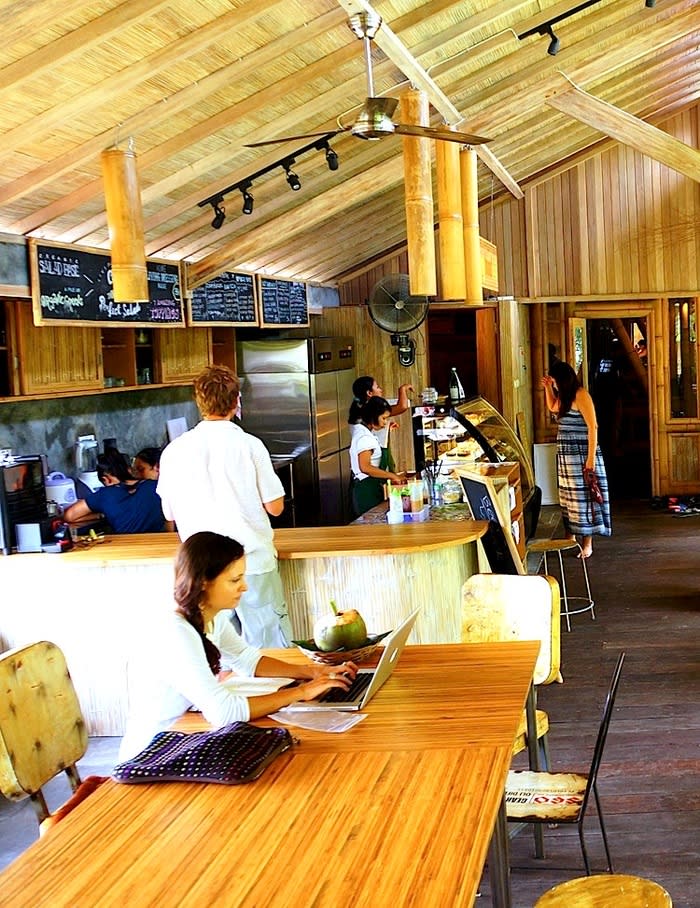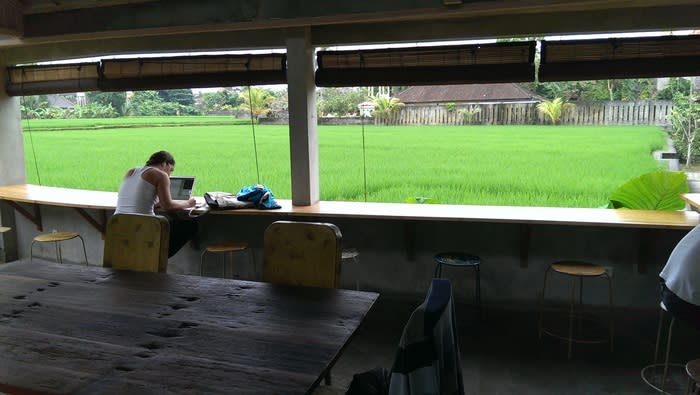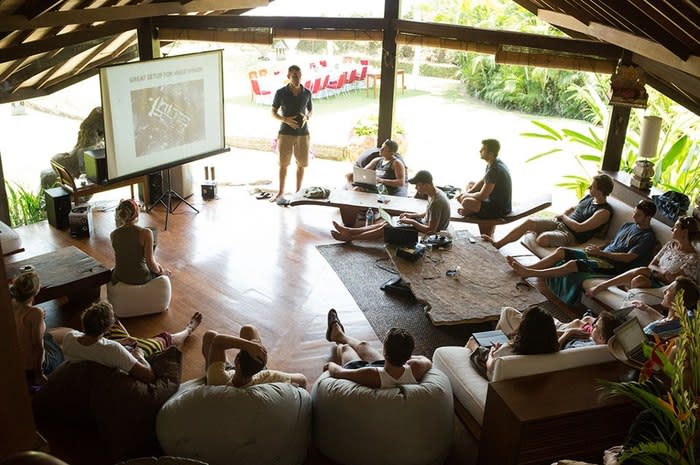Choosing Bali for business and pleasure
Work and leisure are indeed two things that rarely come together.
During a busy day of work at the office, you might have escaped reality every once in a while by day-dreaming about lingering on a beautiful white beach, or thinking of taking the next flight to a holiday destination.
Luckily for you, the modern way of living has created a certain path that allows people, who aren’t in top-level positions in their career, to have the privilege of working and taking a vacation at the same time.
Actually “workations” (working while on vacation) have been a growing trend in the past few years among people who have jobs in the entrepreneurial field, digital business and creative industries. And Bali, as one of the world’s top vacation destinations, is not letting itself be left behind in this movement. In fact, one of the pioneers of business retreats, Project Getaway, had its first event in Bali back in 2010.
The perfect getaway
Coming to Bali for business as well as pleasure might sound too good to be true. But that is exactly what tech geek Michael Bodekaer and a small group of others do.
While kite-surfing one day on the Canary Islands, Bodekaer realized that he missed the networking, brainstorming and sheer fun of working together with other inspiring entrepreneurs in exotic environments.
If he couldn’t take sunny tropical beaches to his fellow entrepreneurs around the world, he thought, why not do it the other way around?
And Project Getaway was born.
“At first, it was hard to convince people of this experimental idea. And the fact that I had never set foot in Asia before just made it worse,” recalled Bodekaer during his TedxUbud talk (an event of inspirational speeches) in Bali last year.
Fortunately, he was finally able to convince 20 entrepreneurs about the project and chose Bali as the first getaway destination in September 2010.
“We all flew in – from all over the world – to our magnificent new home in Bali. And, each of us would take on a new role in the community. We had a chief sports officer who organized intense sport sessions for everyone, chief food officer, chief learning officer and chief goals officer who would help you set clear goals and make sure that you follow through,” said Bodekaer.
Other vital roles at the project included chief music officer, chief cocktail officer and chief mosquito avenger.
Over the course of one month, the group worked collaboratively and efficiently in a private villa in Ubud.
Such efficiency – including the way they eliminated the need to commute to work – gave them more spare time than they usually had in their other working environments.
“We realized that we had actually been giving all of the participants more than 20 hours extra in their lives every single week,” said Bodekaer, who went on to show how the group spent that extra time in Bali – including diving, exploring, swimming and plenty of other fun activities.
That unforgettable experience led Bodekaer to encourage people to practice such a way of working.
He felt that the experience had led them to produce so many great ideas, new businesses and new business partnerships, despite being only 30 days.
Bodekaer pointed to projects like Mailbird and Labster as examples of Project Getaway's success.
The project continues to be an annual event and has expanded to locations in Thailand and Mexico.
Similar groups have also started their own getaways in other destinations, longing to taste the same engaging work experience.
That hub in Ubud
But, joining a business getaway event is not your only ticket to getting productive while traveling to a vacation destination.
You can look into another growing trend, called coworking, which also tries to minimize the need for a common office.
Instead of an office, the so-called traveling workers gather at what is known as a coworking space. And, of course, there is one available in Bali, called Hubud.
Located at Jl. Monkey Forest 88x in Ubud, Hubud opened in March last year as the first -- and the only, so far -- coworking space on the island.
And it is important to note that, as an office substitute, Hubud provides much more than delicious coffee or a comfy place with good internet connection.
The two men in charge, Peter Wall and Steve Munroe, visualized the place as a hub where people could come and collaborate with each other.
To achieve such a vision, Hubud facilitates weekly events for their members, from lunches to workshops.
They currently have 200 members from around 25 different countries, mostly from the United States.
Becoming a member of Hubud is as easy as paying the monthly fee, ranging from Rp 200,000 (US$16.40) for five hours of internet access, up to Rp 25,000,000 for unlimited internet usage and access to Hubud’s facilities like a meeting room, Skype booth and conference room.
As a member, you can attend all Hubud's events and the various workshops it offers, ranging from business lessons, to more basic introductions to local cellular operators.
Another activity through which Hubud encouraged members to develop their skills was the Hackathon event.
In short, Hubud’s approach is focused on nurturing a community for the long term, which is different to Project Getaway’s emphasis on efficient work for a month or two. Yet they both show similarly promising results in their goal of providing a suitable environment for networking and incubating ideas.
After all, who wouldn’t get inspired when they get the chance to work in beautiful Bali?
Read also:









